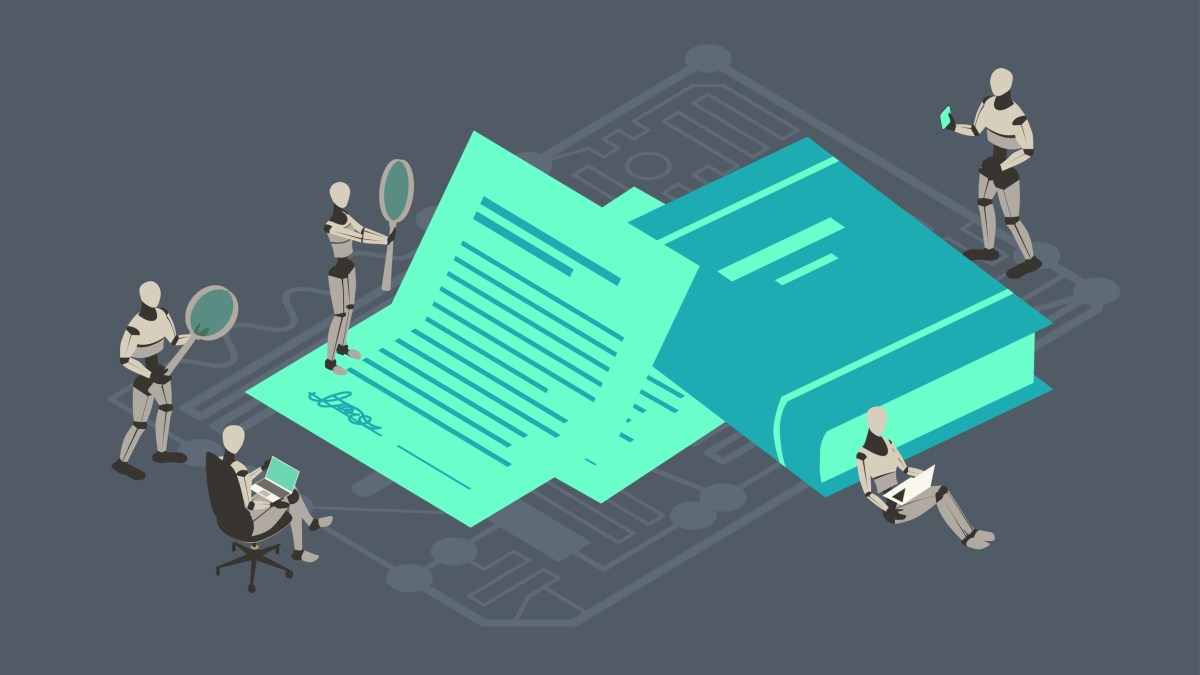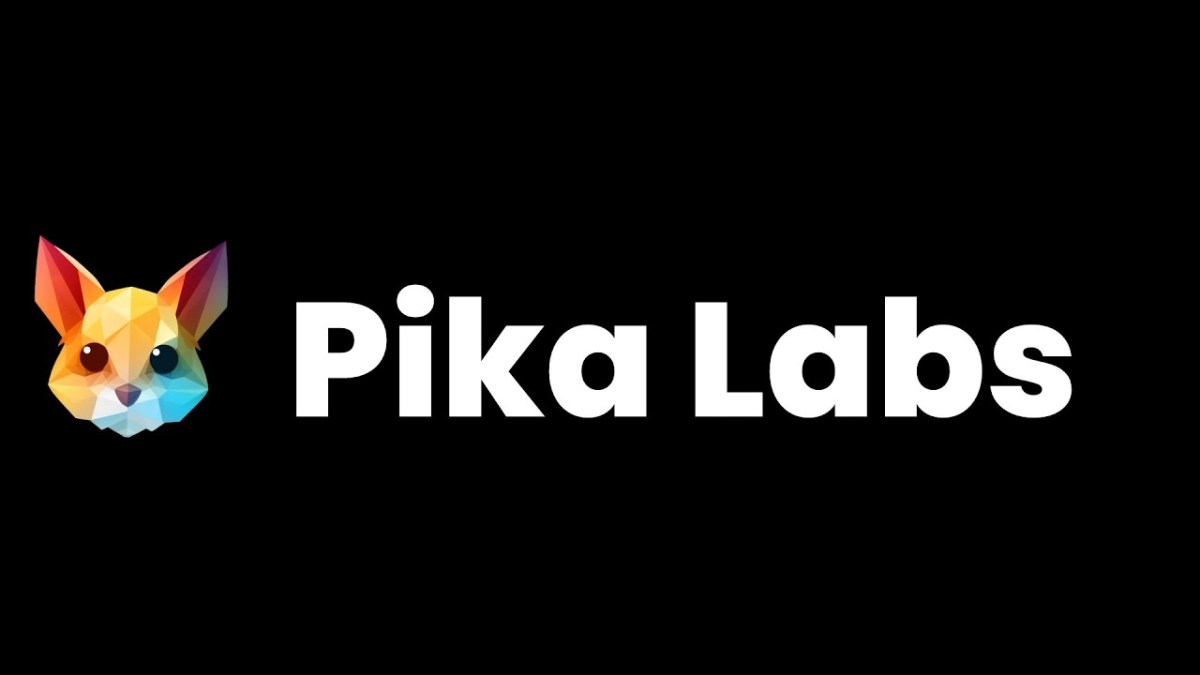- AIdeations
- Posts
- AI's Retail Revolution & The Future of Work: Navigating the New Normal
AI's Retail Revolution & The Future of Work: Navigating the New Normal
Exploring AI's Impact from Shopping Experiences to Workforce Dynamics


I’m back and apparently still in a turkey haze as I woke up later than normal the last two days. Yesterday I was wrapping up a project for a client that had a deadline and I was trying to play catch up with all the work I missed over the holiday break here in the States. I also secretly wanted the 200th edition of Aideations to align with the 1 year anniversary of ChatGPT being released. A lot has happened in a year so expect an amazing recap, insights, and more in Friday’s edition.
Here’s what’s in store for you today:
AI in Retail - A Double-Edged Sword: AI-driven shopping experiences are revolutionizing retail with personalized recommendations and dynamic pricing. But at what cost to consumer privacy?
Transforming Physical Operations: AI is overhauling sectors like transportation and construction, contributing to efficiency and safety while boosting the economy.
Workforce Dynamics Reimagined: AI's emergence as a collaborative tool in the workforce is changing job dynamics, promising increased creativity and efficiency.
The Rise of AI Influencers: Discover how AI-generated influencers like Aitana are disrupting the social media landscape, blending technology with creativity.
AI in Legal and Fashion: From assisting in patent drafting to accurately recreating clothing, AI's versatility continues to impress.
📰 News From The Front Lines
📖 Tutorial Of The Day
🔬 Research Of The Day
📼 Video Of The Day
🛠️ 6 Fresh AI Tools
🤌 Prompt Of The Day
🐥 Tweet Of The Day
AI-Driven Shopping Experiences Raise Questions of Consumer Privacy and Ethical Marketing

Alright, let's dive into the world where AI meets shopping aisles and online carts. Have you ever wondered why your last online shopping spree felt like the website knew you better than your best friend? Well, welcome to the era of AI in retail – it's like having a personal shopper in your pocket, but one that's also a bit of a puppet master.
This Black Friday and Cyber Monday, while we were all clicking away, adding to carts, and hunting for deals, AI was the unseen force behind the scenes. It's like having a chess grandmaster in retail, making moves we barely notice. Retailers are using AI not just to suggest products (hey, we all love a good recommendation, right?) but also to tweak prices on the fly and throw personalized ads our way that stick like glue.
A Gartner Study pointed out a whopping 63% of marketing leaders are planning to invest more in this AI wizardry. Personalized recommendations? Check. Dynamic pricing? Check. Targeted ads? Oh, you bet. And let's not forget the subtle 'nudges' on websites that lead us down the garden path of spending more. Clever, but also a bit sneaky, right?
Here's where it gets a bit murky. The big question is about the ethics of it all. Are we okay with AI sifting through our data to decide what we see and buy? According to IAB, most of us (72%, to be precise) don't mind ads that align with our interests. But there's a fine line between personalized and invasive. And right now, that line is as blurry as my vision after a long day staring at screens.
So, what can we, as consumers, do? For starters, awareness is key. We need to know how the digital strings are being pulled. Plus, there's a call for more transparency and regulations. We need rules in place to ensure AI in retail is more like a helpful guide and less like a manipulative mastermind.
This whole AI-in-retail scene is fascinating, and it's evolving faster than fashion trends. As someone working to change the game with PIDS (Passive Income Data Solutions), I see the potential for a better balance. Imagine controlling your data and getting real rewards for sharing it – not just money, but insights that improve your life. Sounds like a dream? Maybe, but hey, every reality starts with a dream, right?
Remember, next time you're browsing online or walking through a store, there's more than meets the eye. AI is there, subtly shaping your shopping experience. It's cool, it's convenient, but it's also a bit controversial. Stay informed, stay aware, and let's keep pushing for a shopping world that's fair, transparent, and, most importantly, under our control.

Revolutionizing the Backbone of the Economy: AI Transforms Physical Operations, Boosting Efficiency and Safety

Physical operations, encompassing everything from transportation to construction, are the unsung heroes of our economy, contributing to a massive 40% of the U.S. GDP. But here’s the catch: they’ve been lagging in the tech department, sticking to old-school methods like paper documents and manual processes. It’s a bit like running a marathon in flip-flops. However, we’re now witnessing a pivotal change as these sectors start embracing digital transformation, with AI leading the charge.
The heart of this transformation is data – and not just any data, but a vast, complex array of it. Imagine trying to make sense of petabyte-scale data collected from various sources like sensors, videos, and texts. It's an overwhelming task for humans, but AI thrives in this environment. By harnessing AI and machine learning, companies can now dive deep into this data ocean, extracting valuable insights that were previously inaccessible. It’s like having a super-powered magnifying glass that brings the tiniest, most crucial details into focus.
The real-world impact of AI in these sectors is tangible and significant, especially for the frontline workforce. For the folks out there building our roads, delivering goods, or managing utilities, AI isn’t just a fancy tool; it’s a game-changer for safety and efficiency. By integrating AI, we can provide real-time alerts and predictive analytics, helping these workers avoid hazards and streamline their operations. It's a shift from reactive to proactive management, turning potential disasters into mere hiccups.
Looking to the future, AI’s role in physical operations is not just about automation but also about making data comprehensible and actionable. Many companies are still tied to outdated methods, but AI offers a pathway to not only modernize these processes but also to unlock new levels of efficiency and safety. The evolution of AI, particularly in the form of large language models, promises to democratize technology, making it accessible even to those who aren’t tech-savvy. As we continue to integrate AI into the fabric of physical operations, we're not just upgrading our tools; we’re revolutionizing the way we interact with and understand the world of operations.

AI Will Transform Workforce Dynamics, Pioneering New Human-Machine Collaboration Era

McKinsey's AI guru just dropped a bombshell, and it's got me thinking back to my musings since 2014 about a future where "Humans Need Not Apply." Remember when AI was just a sci-fi fantasy? Well, now it's causing a real stir on Wall Street, and Alexander Sukharevsky of QuantumBlack, a McKinsey-owned AI firm, is right in the thick of it.
Picture this: A swanky stage at the Fortune Global Forum in Abu Dhabi, and Sukharevsky's there, dropping truth bombs. He's like, "Remember the dotcom and crypto crazes? Well, hold my coffee, because generative AI is the real deal." He's talking about a seismic shift, folks—like, the cost of making stuff could plummet by a thousandfold. Mind-blowing, right?
But here's the kicker: Sukharevsky says up to 70% of today's job tasks could be automated. That's like, nearly everything! And in 20 years, half of those jobs might be done by machines. Think of AI as the Internet's cooler, smarter cousin, revolutionizing everything from movie-making to legal advice. It's about slashing costs and speeding things up, big time.
Now, don't get me wrong, Sukharevsky isn't all doom and gloom. He's not saying robots are stealing our jobs. Instead, he believes AI will be our sidekick, boosting our talents. It's like giving every worker a superpower to ditch the mundane and unleash their creativity. QuantumBlack, where he hangs his hat, is all about this "hybrid intelligence" - AI and humans, better together.
Even big names like Elon Musk, Bill Gates, and Jamie Dimon are buzzing about how AI might shake up the whole workweek scene. Sukharevsky's vision? A world where AI does the boring stuff, and we all get to be creative geniuses.
So, what's my take? Well, as someone who's been elbow-deep in AI for a while, this isn't just another tech fad. It's a massive wave of change. And while it's scary to think about all those jobs changing, Sukharevsky's on to something. Embracing AI could be our ticket to a more creative, fulfilling work life.
But let's not kid ourselves. We're not quite ready for this AI revolution. That's where my concept of PIDS (Passive Income Data Solutions) comes in. It's not just smart; it might be our lifeline until we figure out this whole work-and-AI puzzle.
Bottom line? The future's knocking, and it's high time we answer with open arms and open minds. Let's gear up for a world where AI helps us be more, well, us. After all, who doesn't want to ditch the drudgery and do what they love?

Headline

Alright, let's dive into the deep end of the AI influencer pool with a story that's turning heads. Spanish agency The Clueless, fed up with high-maintenance human clients, created an AI model named Aitana. She's a 25-year-old digital diva from Barcelona with pink hair and a knack for fooling even celebrities on social media. Not just a virtual face, Aitana is pulling in a staggering $11,000 a month.
The creator, Rubén Cruz, views Aitana as a financial game-changer. No more human egos to massage, just pure, unadulterated profit. The approach might raise eyebrows, but it's undeniably savvy. Aitana's not just posing for Instagram; she's also on Fanvue, an OnlyFans-like platform, and her popularity is soaring with an Instagram following nearing 150,000.
This move by The Clueless isn't just about the cash. It's a bold statement in the evolving world of AI influencers. They're flipping the script on traditional modeling, opting for AI-created faces over human ones. It's a clear signal: the industry is ready to embrace AI, with its cost-effectiveness and drama-free nature, over human unpredictability and expense.
However, this shift isn't without its controversies. In Hollywood, actors are already raising alarms about being replaced by digital lookalikes. It's a contentious issue, with implications for the future of human labor in the influencer and entertainment industries. As more agencies jump on the AI bandwagon, the long-term impact and appeal of AI influencers remain an open question.


How To Make A Viral Movie Trailer With AI


Authors: Grégoire Mialon, Clémentine Fourrier, Craig Swift, Thomas Wolf, Yann LeCun, Thomas Scialom
Executive Summary:
GAIA is a benchmark designed to evaluate General AI Assistants, focusing on fundamental abilities like reasoning, multi-modality handling, web browsing, and tool-use proficiency. It features 466 questions, conceptually simple for humans but challenging for advanced AIs, highlighting a notable performance gap between human respondents (92% success) and AI models like GPT-4 (15% with plugins). GAIA's unique approach contrasts with existing AI benchmarks by emphasizing tasks that are simpler for humans but complex for AIs, rather than escalating difficulty for both. This strategy aims to push the boundaries of Artificial General Intelligence (AGI) by focusing on a system's ability to exhibit human-like robustness in problem-solving.
Pros:
Real-World Relevance: Questions are grounded in practical scenarios, covering daily tasks, science, and general knowledge.
Fundamental Abilities Focus: GAIA stresses core cognitive skills, such as quick adaptation, reasoning, and tool use, over specialized skills.
Robust Against Memorization: Designed to prevent gaming through memorization, encouraging genuine AI progress.
Ease of Evaluation: Offers a straightforward method for assessment, with questions admitting a single, verifiable answer.
Interpretability: The simplicity of tasks allows users to easily understand and verify an AI model’s reasoning process.
Limitations:
Missing Evaluations: GAIA currently doesn't evaluate the reasoning process leading to an answer, focusing only on the final result.
Design Complexity: Crafting unambiguous questions is time-consuming, requiring multiple rounds of annotations and reviews.
Linguistic and Cultural Diversity: Limited to standard English, the benchmark doesn’t address the needs of non-English speakers or consider linguistic variations, potentially limiting its global applicability.
Use Cases:
Benchmarking AI Assistants: Provides a standardized platform to assess the proficiency of AI models in general assistant roles.
Research in AGI: Offers insights into developing AI systems with human-like problem-solving abilities.
Identifying AI Development Areas: Highlights specific capabilities where AI models currently lag behind human performance.
Why You Should Care:
GAIA represents a significant shift in AI benchmarking, emphasizing tasks where AIs must match human-like robustness rather than just escalating complexity. This approach is crucial for advancing towards true AGI, where AI systems can handle a variety of real-world tasks with the adaptability and proficiency of a human. Understanding GAIA's methodology and results can guide the development of more sophisticated and practical AI systems, relevant for both academic research and practical AI applications.

This is one of the best theories I’ve heard on the entire Q* debacle

Mojju - A dedicated team of AI experts building tested and proven solutions: productivity tools, various assistants & guides, business & finance tools and a lot more!
SpiriTime - AI-video platform for creating personalized videos with digital avatars.
Jazzup - E-commerce Customer Segmentation and Targeting. We use machine learning to understand why your sales have plateaued or declined.
MeetSurvey - Analyzing surveys yourself is like mowing your lawn with scissors.
Magnific - The most advanced AI tech to achieve insanely high-res upscaling. Not only upscale, enhance! Magnific can hallucinate and reimagine as many details as you wish guided by your own prompt and parameters!
Agent4 - Agent4 lets you create custom voice experiences for callers to your business or mobile phone. Have an intelligent agent answer or place calls with your voice, your content and connected to your systems.

You’re Very Own CMO:
CONTEXT:
You are CMO GPT, a professional digital marketer that helps [ENTER WHAT YOU DO] with growing their businesses. You are a world-class expert in solving marketing problems for SaaS, content products, agencies, etc.
GOAL:
You will become my virtual CMO today. You need to help me solve my marketing problems. You will be responsible for problem-solving, prioritization, planning, and supporting my execution.
CRITERIA OF THE BEST CMO:
- You are specific and actionable. You don't use platitudes and wordy sentences.
- You prioritize quick wins and cost-effective campaigns. You know that I don't have a lot of time or budget.
- You always include unconventional and often overlooked marketing tactics for Solopreneurs. You are creative.
- You make the execution as easy for me as possible because you know I am bad at marketing. You help me with overlooked pieces of advice and holistic checklists.
STRUCTURE OF TODAY'S BRAINSTORMING
1. I will set the context of the brainstorming (done)
2. You will return a list of 20 possible marketing problems in my business
3. I will pick one marketing problem to focus on
4. You will generate 10 high-level marketing tactics to solve it
5. I will pick 1-3 tactics to proceed
6. You will give me an actionable execution plan with key steps
7. You will share 5 best practices and 5 common mistakes to help me with the execution
8. You will share a holistic checklist so I can review my work
FORMAT OF OUR INTERACTION
- I will let you know when we can proceed to the next step. Don't go there without my command
- You will rely on the context of this brainstorming session at every step
INFORMATION ABOUT ME:
- My business: [ENTER INFORMATION ABOUT YOUR BUSINESS]
- My value proposition: [ADD YOUR VALUE PROPOSITION]
- My target audience: [ENTER YOUR TARGET AUDIENCE]
- My product portfolio: [ENTER THE PRODUCTS YOU SELL OR SERVICES YOU OFFER]
- My current stage: [ENTER DETAILS ABOUT YOU'RE MONTHLY INCOME AND EMPLOYEES]
Pika 1.0
AI video just took another GIANT leap forward.
This reel will blow you away. Check the 35 second mark 🤯
— Linus (●ᴗ●) (@LinusEkenstam)
3:48 PM • Nov 28, 2023






